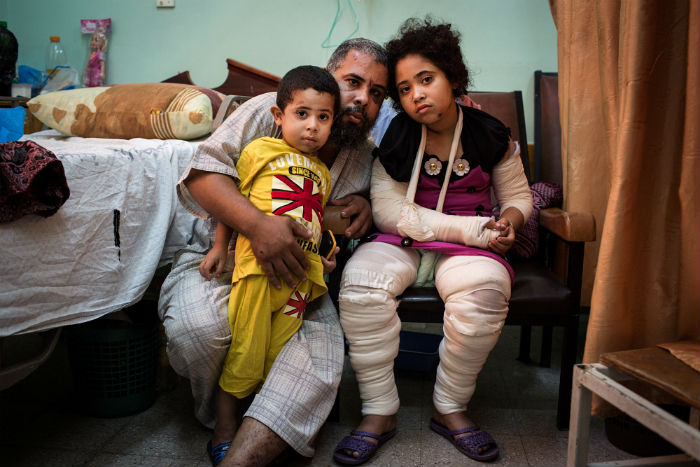By: Imogen Mathers
Send to a friend
The details you provide on this page will not be used to send unsolicited email, and will not be sold to a 3rd party. See privacy policy.
There has never been a global study on men’s role as family caregivers — until now, reported South Africa’s Mail & Guardian last month (30 June). For years, global studies on family life and development by the UN and civil society have focused overwhelmingly on women and children. Men’s role has been overlooked, despite the fact that 80 per cent of boys will become fathers and play a caregiving role.
The inaugural State of the world’s fathers report aims to correct this imbalance. [1] And with the sign off on the Sustainable Development Goals (SDGs) just two months away, the report “comes just at the right time”, according to Zahrah Nesbitt-Ahmed, a gender and sexuality researcher at UK think-tank the Institute of Development Studies and one of the report’s expert reviewers. She hopes it will help bolster the case for retaining proposed SDG target 5.4 — to recognise unpaid care and promote shared responsibility for it within families. [2]
The report was published in June by campaigners MenCare, with support from UN Women and other partners. It analyses 700 studies across 90 countries on issues such as men’s and women’s different levels of involvement in caregiving and domestic work.
A global snapshot points to the massive imbalance here: women make up 40 per cent of the world’s workforce, but do up to ten times more unpaid care work than men, the study reports.
Nesbitt-Ahmed tells me that, while interest in the role of men in families has slowly grown over the past few decades, this research has often taken a narrow view, seeing “men as breadwinners and women as caregivers”. The knock-on effect is that policies can unintentionally presume men have little involvement in parenting or care work, she says.
The new report “not only recognises women’s care work, but also brings men into the fold”, she adds.
It reveals just how heavy a burden unpaid care work is for women in low-income countries: in South Africa, women carry out eight times more unpaid work than men and in India nearly ten times more. In Latin America, they spend a staggering six to 23 more hours than men each week on paid and unpaid work combined. Crucially, this begins with young girls, which harms their schooling and future wellbeing.
*30% of developed economies do not provide statutory paternity leave
The study reports how, in HIV-endemic countries, women and girls provide 70 to 90 per cent of care for sick or dying relatives, with many forced to leave paid work or school to do so. This shows the clear benefits of sharing care more equally and shifting some of it onto the state.
Nesbitt-Ahmed says a focus on the role of the state and employers is particularly important. And the report’s evidence-based recommendations for “truly transformative gender policies” — longer paternity leave, shared parental leave and early childhood services, for example — will be vital for sparking conversations with policymakers.
But what about using these findings at a national level? Here, “understanding context is really important,” Nesbitt-Ahmed says. Governments or organisations seeking to convert the findings into locally relevant policy will need to “take a historical perspective on fatherhood and how the roles of men and fathers are understood” — and adapt policies and their wording sensitively.
This localised understanding will also help work out the best “entry points” — schools or religious leaders, for example — for working with men and boys.
References
[1] State of the world’s fathers (MenCare, 23 June 2015)
[2] Open Working Group proposal for Sustainable Development Goals (UN, June 2014)














